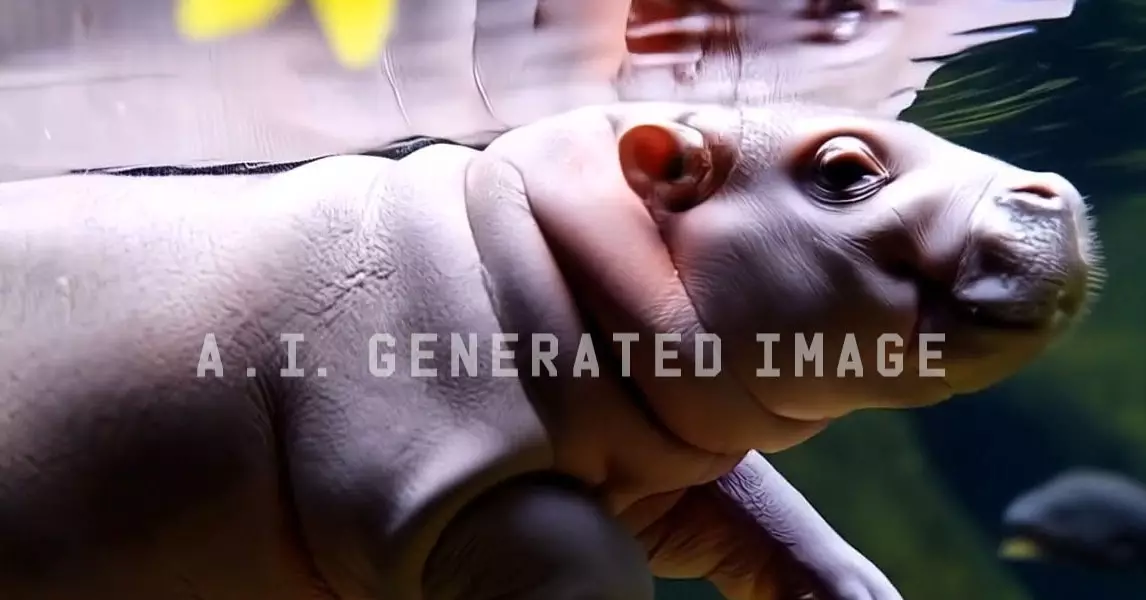In an ambitious move, Meta has recently introduced Movie Gen, a cutting-edge AI model designed to create realistic audio and video clips. This launch showcases Meta’s commitment to incorporating advanced technologies into media production, further shifting the landscape of content creation. Reflecting on the capabilities of Movie Gen, the company distributed multiple 10-second clips, such as a playful baby hippo frolicking in water, to highlight this innovative tool’s potential. While the release of Movie Gen is still on the horizon, the announcement follows Meta’s recent Connect event, which unveiled fresh hardware and its latest language model, Llama 3.2.
What sets Movie Gen apart from other AI models is its functionality that extends beyond simple text-to-video conversion. The model allows users to make precise alterations to pre-existing video clips, opening avenues for creativity previously reserved for film editors. For instance, in one of the showcased videos, a woman clad in a VR headset was transformed to don steampunk binoculars, illustrating the model’s potential for immersive storytelling. Additionally, Movie Gen pairs generated visuals with corresponding audio clips, enhancing the viewing experience. Audiences can enjoy the serene sounds of nature alongside cinematic music, creating a synesthetic experience that adds depth to AI-generated content.
Technical specifications reveal that Movie Gen Video consists of a staggering 30 billion parameters, while Movie Gen Audio operates on 13 billion parameters. To provide perspective on these figures, Llama 3.1’s largest variant boasts an impressive 405 billion parameters. This stark contrast suggests that Movie Gen, designed for visual and auditory generation, is a specialized tool focused on delivering high-end multimedia. Meta claims that the model retains the ability to produce high-definition videos lasting up to 16 seconds while outperforming comparable systems in video quality.
The question of what data underpins the effectiveness of generative AI models is an ongoing debate within the tech community. Meta has disclosed that Movie Gen was trained using a mix of licensed and publicly accessible datasets, but lacks transparency regarding specific content. This ambiguity raises ethical concerns in the generative AI landscape, as it remains unclear what sources inform the capabilities of major models. As AI-generated media becomes increasingly integrated into digital experiences, understanding the training data will be essential for establishing trust and fairness in the production of content.
With Movie Gen’s exciting potential, the market awaits its wide-scale release. Meta’s press announcement has hinted at a “potential future release,” yet specifics remain elusive. In a comparable vein, OpenAI introduced its video model Sora around the same time and has yet to make it publicly available. As these tech giants dominate the AI realm, smaller startups—like Runway and Pika—are already offering experimental platforms for AI-generated video, providing users with a chance to engage with multimedia innovation.
The integration of Movie Gen features into Meta’s existing platforms such as Facebook, Instagram, and WhatsApp appears plausible, given the company’s history in social media and content sharing. Competing firms, including Google, are also actively pursuing similar paths, intending to embed their Veo video model into YouTube Shorts next year.
The introduction of Movie Gen signifies a landmark moment for Meta and the broader landscape of generative AI and media production. While the release timeline and detailed functionality are still in development, the possibilities for users and creators are endless. As consumers continue to embrace new forms of media content, Movie Gen could redefine creativity and interactivity in ways that were previously unimaginable, despite any ethical ramifications surrounding data usage. As this technology evolves, it will undoubtedly raise significant questions about ownership, creativity, and the future of storytelling in a digital world. The transformation is underway, and the industry looks toward a more automated, immersive, and creatively liberated future.

